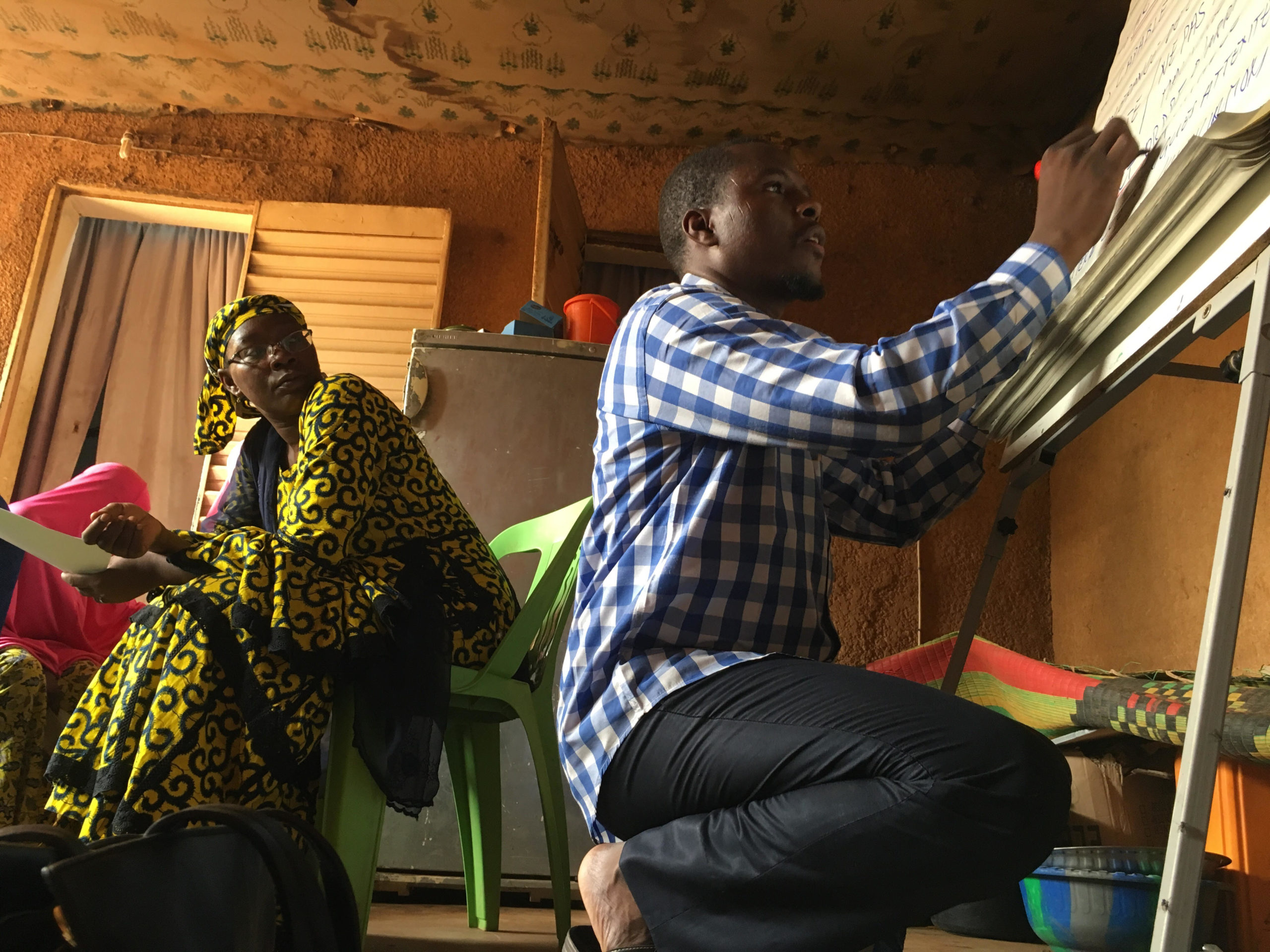Over the years, much of the research coming out of the Johns Hopkins Center for Communication Programs has focused on understanding why individuals and communities may or may not choose to seek health services at the critical moments they or their children need them.
Is the clinic too far away?
Is treatment affordable?
But a CCP-led research team in West Africa is exploring a new question: If people do travel to the nearest clinic, do they have confidence that they’ll receive quality care?
Through a series of focus group discussions being conducted with men and women in Côte d’Ivoire and Niger, the CCP team from West Africa Breakthrough ACTION (WABA) – a three-year USAID-funded family planning project – is asking community members to define quality as it relates to family planning services at local clinics.
First, what does “quality” even mean? Surely it can mean several different things to different people and may even be defined by several different criteria for each individual.
Grouped by age and whether or not they currently use any modern contraceptive method, participants were asked to define what quality means to them from the moment they arrive at the clinic through their consultation and follow-up care upon returning home.
“Sometimes when you go into the clinic no one greets you or tells you where to wait or how long you’ll wait,” said one woman in a focus group in Niger. But a participant in another group told researchers: “As long as the consultation rooms are clean and there is privacy, I can tolerate long waits or rude staff.”
At each of these critical junctures, patients who navigate West African community health systems often become discouraged or forgotten. CCP’s WABA team is using community experiences to help improve quality standards for clinics in collaboration with local partners in order to keep men and women in the system and within reach of life-saving services.
In collaboration with local partners, community definitions of “quality” will be used to create an accreditation system that builds upon a successful CCP campaign conducted with family planning clinics in Burkina Faso, Cameroon, Côte d’Ivoire and Togo in the late 1990s. Clinics that met community definitions of quality were named ‘Gold Circle’ clinics, which let people know they were places to get superior service.
The new quality standards defined in current research will be used as benchmarks for clinics in Burkina Faso, Côte d’Ivoire, Niger and Togo to receive similar accreditation.
Previous research has demonstrated strong links between contraceptive use and reduced maternal and child mortality, which suggests that if more people were using contraception, more lives could be saved. Niger in particular is a country with one of the world’s highest fertility rates (7.6 children per mother) but lowest use of family planning services – a combination that contributes to its higher than average maternal and child mortality.
Using insights from the focus groups, CCP’s program specialists and partners will then develop strategic messaging to promote the improved quality that community members can expect, so they can be confident that they’ll receive at least a minimum standard of care. With this confidence, people may be more willing to use the available services – and improve their health as a result.
It’s not enough that services exist. People must believe that those services are worth their time, effort and money.
Stay tuned as data collection wraps up this summer.





